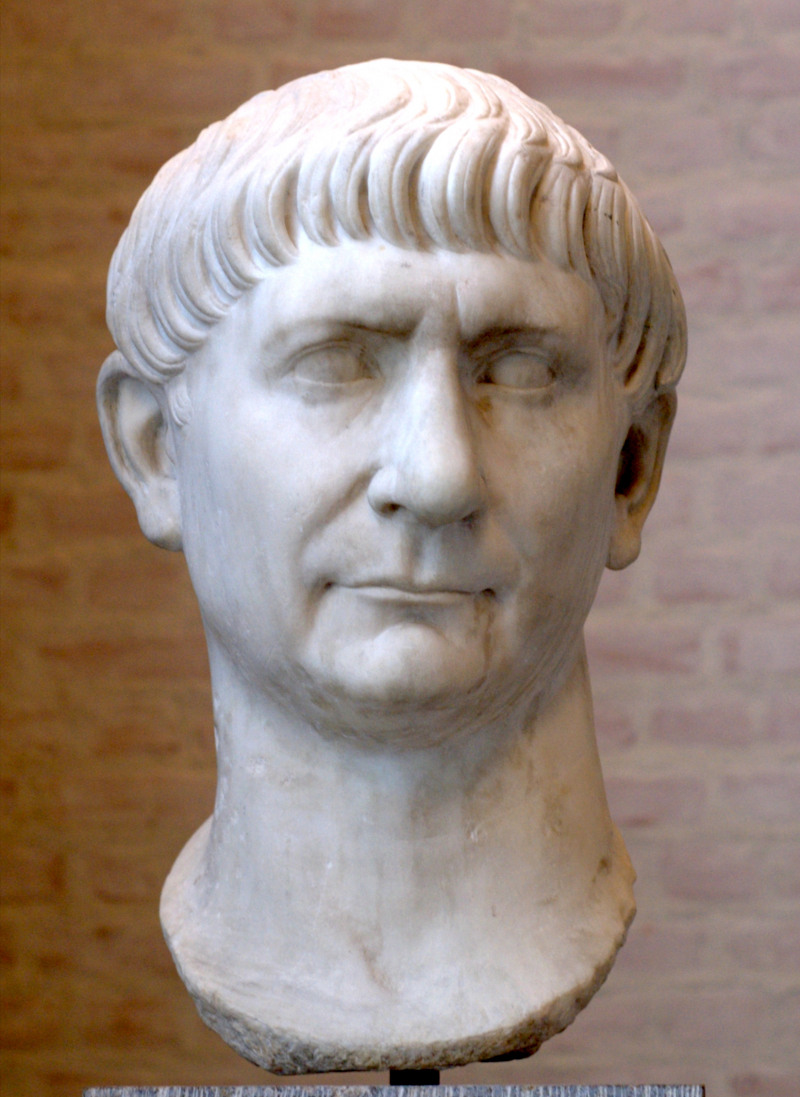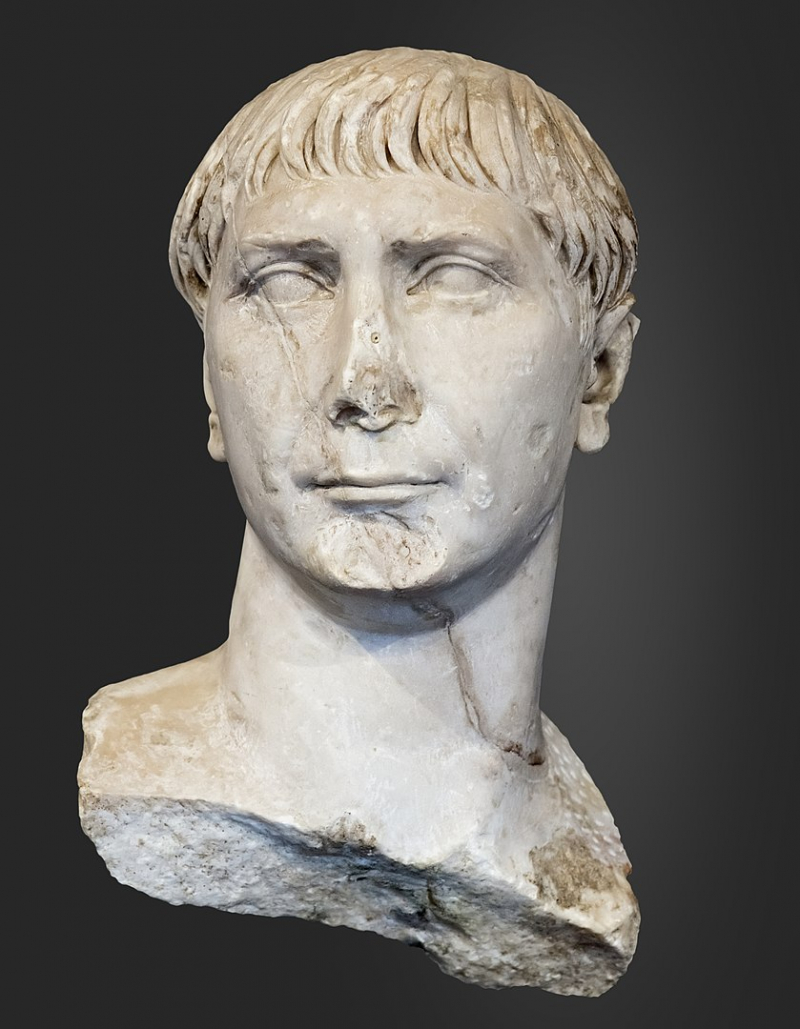Trajan

Trajan (Caesar Nerva Traianus; 18 September 53 – 9/11 August 117) was the Emperor of Rome from 98 to 117. Trajan is recognized as a successful soldier-emperor who presided over one of the biggest military expansions in Roman history and led the empire to its highest territorial size by the time of his death. He was officially dubbed Optimus Princeps ("best ruler") by the Senate. He is also remembered for his philanthropic rule, which included overseeing extensive public building programs and implementing social welfare policies, earning him the title of the second of the Five Good Emperors who presided over an era of peace within the Empire and prosperity in the Mediterranean world.
Trajan was born in Italica, a Roman city of Italic settlers in the province of Hispania Baetica near contemporary Seville in present-day Spain. Although some ancient authors claimed that Trajan was of provincial origins, his branch of the Ulpia gens, the Ulpi Traiani, originated in the Italian city of Todi in Umbria; they were either among the original settlers of Italica or part of the groups who later moved in the town between the third and first centuries BC. Trajan was born into a senatorial family because his father, Marcus Ulpius Traianus, was also born in Hispania. Trajan rose to prominence during Emperor Domitian's reign. Trajan assisted Domitian against a Rhine insurrection led by Antonius Saturninus while serving as a legatus legionis in Hispania Tarraconensis in 89. Domitian was succeeded in September 96 by the elderly and childless Nerva, who was unpopular with the army. After a brief and turbulent year in rule, culminating in an uprising by Praetorian Guard troops, he chose the more popular Trajan as his heir and successor. Nerva died in 98, and his adoptive son took over without incident.
Trajan is most recognized as a civilian administrator for his vast public building program, which altered Rome and left numerous enduring buildings such as Trajan's Forum, Trajan's Market, and Trajan's Column. He acquired the Nabataean Kingdom early in his reign, establishing the province of Arabia Petraea. His conquest of Dacia considerably enriched the empire, as the new region contained numerous precious gold mines. Trajan's battle against the Parthian Empire resulted in the capture of Ctesiphon as well as the conquest of Armenia, Mesopotamia, and Assyria. Trajan was unwell and died of a stroke in the city of Selinus in late 117 while traveling back to Rome. The Senate and Trajan's cousin and successor, Hadrian, whom Trajan allegedly adopted on his deathbed, both deified him. Trajan's ashes, according to tradition, were interred in a small room beneath Trajan's Column.













